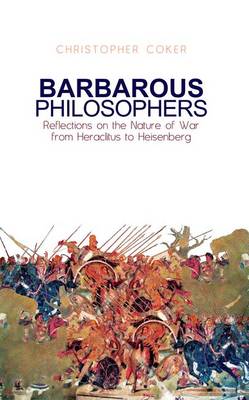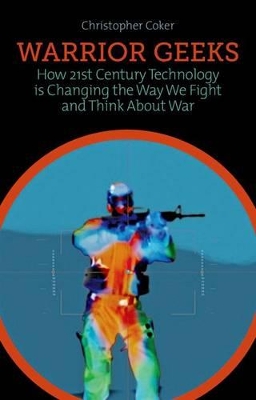Columbia/Hurst
2 total works
This is not a book about philosophy and war. It is a book on contemporary conflict in which the author invokes philosophy to help understand the problems that we face in fighting war today. Barbarous Philosophers sets out to discuss the nature of war through the work of sixteen philosophers from Heraclitus in the sixth century BC to the philosopher-physicist Werner Heisenberg writing in the 1950s. Each section begins with a brief epigram representative of each writer's thinking. The contention of the book is that war, as opposed to warfare, is largely an invention of philosophy - our reflection on organised collective violence that date from the time we emerged from the hunter-gatherer stage of development and created the first civilisations centred around city life. The Greek philosophers were the first to invent what Pascal called the 'rules' of war and in representing the nature of war they also influenced how it was conducted to the extent that generals allowed their minds to be shaped over time by the work of philosophy. The purpose of philosophy, writes Herbert Simon, is to understand meaningful simplicity in the midst of disorderly complexity. Behind the flux of everyday life there is an 'ordered' existence which it is the task of philosophy to uncover if it can. Behind the ever changing character of war lies its nature that needs to be grasped if it is to be waged successfully.
Warrior Geeks examines how technology is transforming the way we think about and fight war, taking three major changes that are driving this process: cybernetic technologies that are folding soldiers into a cybernetic system that will allow the military to read their thoughts and emotions and mould them accordingly; the coexistence of men and robots in the battle-spaces of tomorrow; and the extent to which we may be able to re-engineer warriors through pharmacological manipulation. By referring back to the Greeks who defined the contours of war for us, Coker shows how we are in danger of losing touch with our humanity - the name we give not only to a species but the virtues we deem it to embody. The journey from Greeks to Geeks may be a painful one. War can only be rendered more humane if we stay in touch with the ancestors, yet unfortunately we are planning to subcontract our ethical choices to machines. In revaluing technology, are we devaluing our humanity, or the post-human condition, changing our subjectivity and thus the existential dimension of war by changing our relationship with technology both functionally and performatively?

